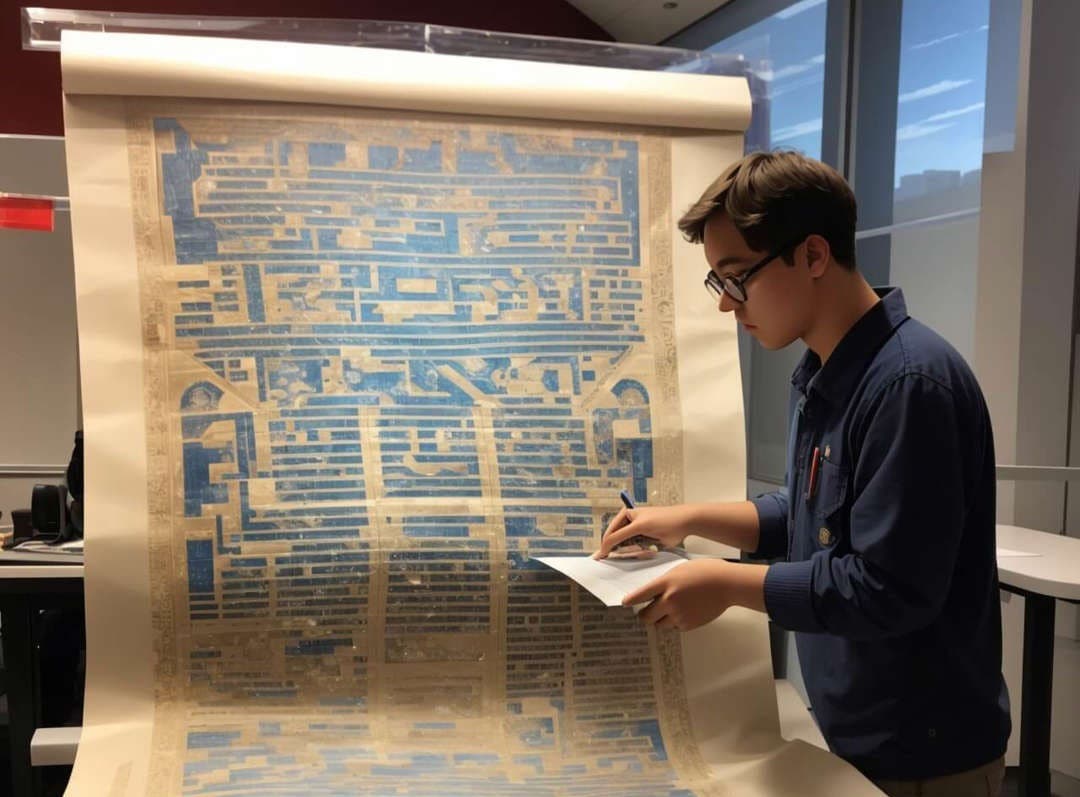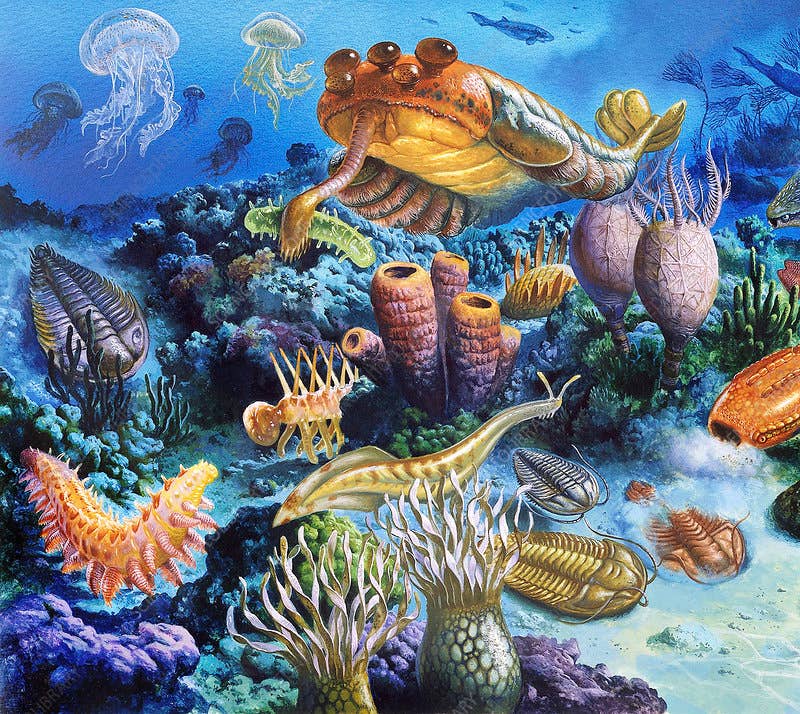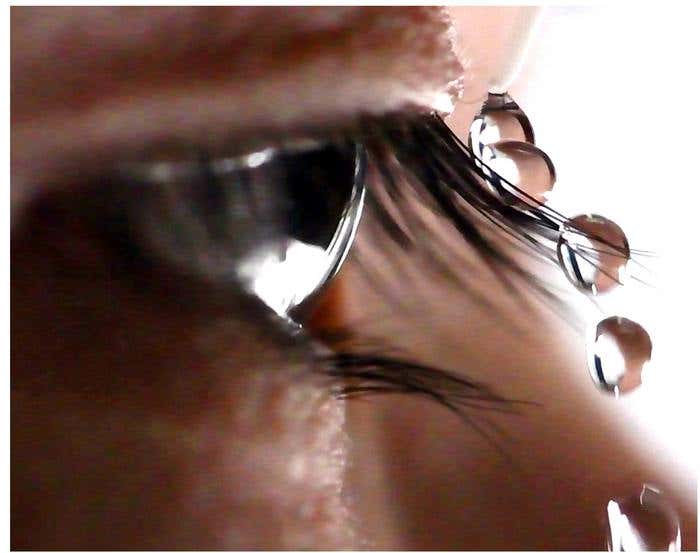21 year-old student cracks ancient code and wins prestigious international award
Groundbreaking achievement has sent shockwaves through the worlds of archaeology, linguistics, and artificial intelligence.

In a remarkable triumph of technology and historical inquiry, Luke Farritor, a computer science student at the University of Nebraska-Lincoln, has claimed the coveted First Letters Prize in the prestigious Vesuvius Challenge. This esteemed recognition comes on the heels of a groundbreaking achievement that has sent shockwaves through the worlds of archaeology, linguistics, and artificial intelligence.
Farritor's journey into the heart of antiquity began with a quest to unravel the secrets of ancient papyrus scrolls, relics of a distant past buried beneath the volcanic fury of Mount Vesuvius nearly two millennia ago. These delicate scrolls, charred and inscrutable, had long confounded historians and archaeologists. However, Farritor's unwavering determination and innovative use of artificial intelligence would change the course of our understanding of these enigmatic artifacts.
At the forefront of this remarkable endeavor was Dr. Brent Seales, a luminary in the field of digital archaeology at the University of Kentucky. Dr. Seales provided the indispensable 3D X-ray scans that offered a non-invasive means of peering into the tightly wound scrolls. This technology was a vital lifeline for these fragile remnants of the past, as physical handling posed the risk of further damage.
Farritor's laborious efforts spanned six months of meticulous work, as he harnessed the power of artificial intelligence to decode a single word: "purple." This seemingly modest accomplishment carried profound implications. It opened a new window into the annals of history and breathed life into a treasure trove of knowledge that had remained dormant for centuries.
Dr. Jeanne Reames, Director of the Ancient Mediterranean Studies program at UNO, emphasized the significance of Farritor's breakthrough. She highlighted the potential for unearthing writings on Macedonian culture by Marsyas, a contemporary of Alexander the Great.
Additionally, these scrolls may contain insights from the works of Seneca the Elder, shedding light on the tumultuous period of the Roman Republic's decline and the ascent of the Empire. These texts could offer invaluable perspectives on governance and societal structures, echoing themes relevant to modern discussions on democracy and republics.
Related Stories
A Prize, A Purpose
Farritor's monumental achievement not only garnered him academic acclaim but also a substantial monetary award of $40,000. This financial boost fueled his ambition to decode more passages, with the ultimate goal of securing the grand prize of $700,000 offered by the Vesuvius Challenge for reading multiple layers of text within the scrolls by the year's end.
Despite alluring job offers from the tech industry, including SpaceX where he had previously interned, Farritor remains steadfast in his commitment to the scrolls. His dedication underscores the profound synergy between technology and the humanities, offering a glimpse into the uncharted territory of our past and its potential relevance to our future.
The Nexus of Technology and Humanities
Farritor's singular focus underscores the importance of interdisciplinary expertise in unraveling historical mysteries. As the academic community eagerly awaits the revelation of the scrolls' contents, there is a palpable sense of excitement about the untapped knowledge they hold. This pursuit of knowledge represents a significant stride toward a deeper understanding of ancient civilizations and their legacies.
In sum, Farritor's journey serves as a shining example of the modern scholar—a fusion of technical prowess, historical inquisitiveness, and unwavering dedication to uncovering the mysteries of the past. His remarkable progress signals a new era in which technology becomes an invaluable tool for rediscovering and preserving our heritage, illuminating chapters of history that were once shrouded in darkness.
The Vesuvius Challenge: A Beacon of Historical Literacy
The Vesuvius Challenge, with its global spotlight and substantial incentives, continues to propel the pursuit of historical literacy. It beckons individuals like Farritor, who channel their intellect and passion into unlocking the mysteries of history. As Farritor persists in deciphering the remaining texts, his work may serve as a blueprint for future efforts at the intersection of technology and historical scholarship.
In a world where the past and the future collide, Luke Farritor's remarkable journey reminds us that the keys to our history may lie not only in the pages of books but also in the algorithms of artificial intelligence.
As we stand at the precipice of unprecedented discoveries, the fusion of technology and historical inquiry promises to be an extraordinary catalyst for illuminating the hidden recesses of our shared human story.
For more science and technology stories check out our New Discoveries section at The Brighter Side of News.
Note: Materials provided above by The Brighter Side of News. Content may be edited for style and length.
Like these kind of feel good stories? Get the Brighter Side of News' newsletter.
Joseph Shavit
Head Science News Writer | Communicating Innovation & Discovery
Based in Los Angeles, Joseph Shavit is an accomplished science journalist, head science news writer and co-founder at The Brighter Side of News, where he translates cutting-edge discoveries into compelling stories for a broad audience. With a strong background spanning science, business, product management, media leadership, and entrepreneurship, Joseph brings a unique perspective to science communication. His expertise allows him to uncover the intersection of technological advancements and market potential, shedding light on how groundbreaking research evolves into transformative products and industries.



